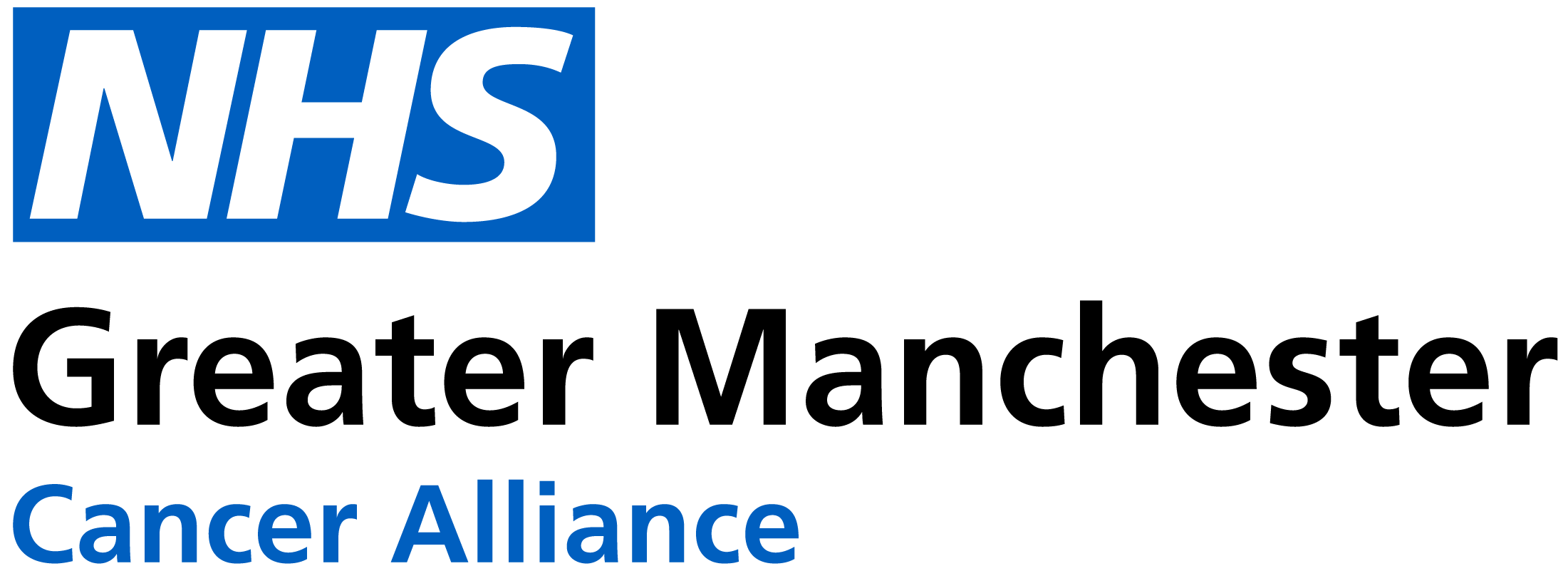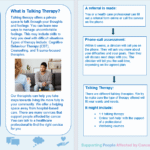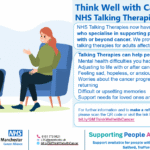The Greater Manchester Cancer Alliance and Greater Manchester Mental Health NHS Foundation Trust are working together to improve psychological support for people affected by cancer.
Receiving a cancer diagnosis is life changing. It’s normal to experience a range of difficult thoughts and feelings along the way. Many people will want some additional support.
How can Think Well with Cancer support you?
Receiving a cancer diagnosis is life changing. It’s normal to experience difficult thoughts and feelings along the way. Many people will want some additional support.
Talking Therapies can help you cope with difficulties, such as:
- Adjusting to life after a cancer diagnosis or treatment
- Adjusting to life with cancer as a long-term condition
- Feeling sad, worried, or hopeless
- Worrying about your health, the cancer getting worse, or coming back
- Coping with changes to your body after treatment
- Living with or caring for someone with cancer
- Losing a loved one
- Difficult memories or trauma related to the cancer experience
What is talking therapy?
Talking therapy offers a private space to talk through your thoughts and feelings. You can learn new ways to manage uncomfortable feelings. This may include skills to help you deal with difficult situations. Types of therapy include: Cognitive Behaviour Therapy (CBT), Counselling, and Trauma-focused therapies.
Our therapists can help you take steps towards living life more fully in your community. We offer a helping space away from hospital-based care. There are many services that support people affected by cancer. You can talk to a healthcare professional to find the right service for you.
How to make a referral
Referrals are now open. People can refer themselves directly, or a doctor, nurse, or other healthcare professional can make a referral on their behalf.
To begin the referral process, choose your local area below and fill in the referral form.

Wigan
To make a professional referral, please click the link here: www.iaptportal.co.uk/wiganpro.html
Do you need Urgent Mental Health Support?
If you are experiencing a mental health crisis or something that makes you feel severely unsafe, distressed, or worried about your mental health, you can now contact your local crisis service in Bolton, Salford, Trafford, Manchester, Wigan and Leigh by calling NHS 111 and selecting the mental health option.
Please follow the link below for more information
Further Info For Healthcare Professionals
NHS Talking Therapies (formerly IAPT) is the primary care mental health service. Greater Manchester Mental Health NHS Foundation Trust supports people who live in Manchester, Salford, Bolton, Trafford, and Wigan. If someone lives outside of this area, their local Talking Therapies service may be able to help.
In Greater Manchester Mental Health NHS Foundation Trust, NHS Talking Therapies Services can support people when their wellbeing or mental health has been affected by cancer. This includes people who have a diagnosis themselves, and their close relatives / loved ones. Talking Therapies supports people in the community to take steps towards living life more fully in the community. It gives a helping space away from hospital-based care.
If someone is undergoing cancer treatment and regularly visiting the hospital, or living with advanced cancer, there might be another service that is a better fit.
Here are some common experiences that Talking Therapies could help with:
- Adjusting to life after a cancer diagnosis or treatment
- Worrying about health and the future
- Worrying about the cancer progressing or returning
- Feeling sad, hopeless, or anxious
- Struggling with difficult memories related to cancer treatment
- Living with cancer as a long-term condition (i.e. metastatic disease)
- Mental health difficulties that are being impacted by the experience of cancer
- Adjusting and coping with changes to the body following treatment
- Dealing with a sense of loss over life before the cancer
- Coping with living with or caring for a loved one with cancer
- Losing a loved one
- Managing employment
Talking Therapies can help people in lots of different ways. Examples include wellbeing courses, mindfulness groups, evidence-based talking therapies, phone-guided self-help, employment support, and more.
In addition, The Think Well with Cancer project has created a new pathway. This new team currently has two therapists who specialise in supporting people affected by cancer. This pathway offers a priority service for people with more severe and complex difficulties. For example, where someone is experiencing high levels of distress, and this is having a significant impact on their daily life. If someone is not suitable for this specific pathway, a range of different options are still available within Talking Therapies.
The wider Talking Therapies workforce will be able to access training on topics related to cancer and the impact. This will help more staff within Talking Therapies to better support people affected by cancer.
People can refer themselves to Talking Therapies, or a professional can make a referral for them. Within 6 weeks, the person wanting help will be offered a 45-minute phone call to talk about their difficulties. This conversation will find out what type of support will be the best fit. Depending on the kind of therapy someone wants and needs, there might be a wait.
Talking Therapies services can offer support at any time on someone’s cancer journey, including long after cancer treatment has ended. If someone is undergoing cancer treatment and regularly visiting the hospital, or living with advanced cancer, there might be another service which could help. This might include services that are based within the hospitals, for example Macmillan Counsellors or Psycho-oncology services. Other examples include Palliative Care Services and Maggie’s. Sometimes there may be more than one service that can help, if you are unsure where to go, please contact the service for advice or speak to a healthcare professional.
If you would like help from NHS Talking Therapies, please use the links below to make a referral. People can refer themselves directly, or a doctor, nurse, or other healthcare professional can make a referral on their behalf. Please note Salford accepts referrals via GPs, or a person can refer themselves over the phone.
To begin the referral process, choose your local area below (where your GP is registered) and fill in the referral form online.







